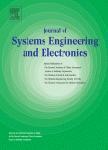QoS-aware multicast routing protocol for Ad hoc networks
QoS-aware multicast routing protocol for Ad hoc networks作者机构:School of Computer Science and Technology Wuhan Univ. of Technology Wuhan 430063. P. R. China Dept. of Mathematics and Physics Wuhan Univ. of Science and Engineering Wuhan 430073. P. R. China
出 版 物:《Journal of Systems Engineering and Electronics》 (系统工程与电子技术(英文版))
年 卷 期:2006年第17卷第2期
页 面:417-422页
核心收录:
学科分类:12[管理学] 1201[管理学-管理科学与工程(可授管理学、工学学位)] 0808[工学-电气工程] 0809[工学-电子科学与技术(可授工学、理学学位)] 08[工学] 0802[工学-机械工程] 0811[工学-控制科学与工程] 081201[工学-计算机系统结构] 0812[工学-计算机科学与技术(可授工学、理学学位)]
基 金:This project was supported by the National Natural Science Foundation of China (60172035 ,90304018) NSF of HubeiProvince (2004ABA014) and Teaching Research Project of Higher Educational Institutions of Hubei Province (20040231)
主 题:multieast routing routing protocol QoS AODV MAODV.
摘 要:Ad hoe wireless networks consist of mobile nodes interconnected by multihop communication paths. Unlike conventional wireless networks, ad hoc networks have no fixed network infrastructure or administrative support. Due to bandwidth constraint and dynamic topology of mobile ad hoc networks, supporting Quality of Service (QoS) is an inherently complex, difficult issue and very important research issue. MAODV (Multicast Ad hoc Ondemand Distance Vector) routing protocol provides fast and efficient route establishment between mobile nodes that need to communicate with each other. MAODV has minimal control overhead and route acquisition latency. In addition to unicast routing, MAODV supports multicast and broadcast as well. The multicast routing problem with multiple QoS constraints, which may deal with the delay, bandwidth and packet loss measurements is discussed, and a network model for researching the ad hoc network QoS multicast routing problem is described. It presents a complete solution for QoS multicast routing based on an extension of the MAODV routing protocol that deals with delay, bandwidth and packet loss mesurements. The solution is based on lower layer specifics. Simulation results show that, with the proposed QoS multicast routing protocol, end-to-end delay, bandwidth and packet loss on a route can be improved in most of cases. It is an available approach to multicast routing decision with multiple QoS constraints.



